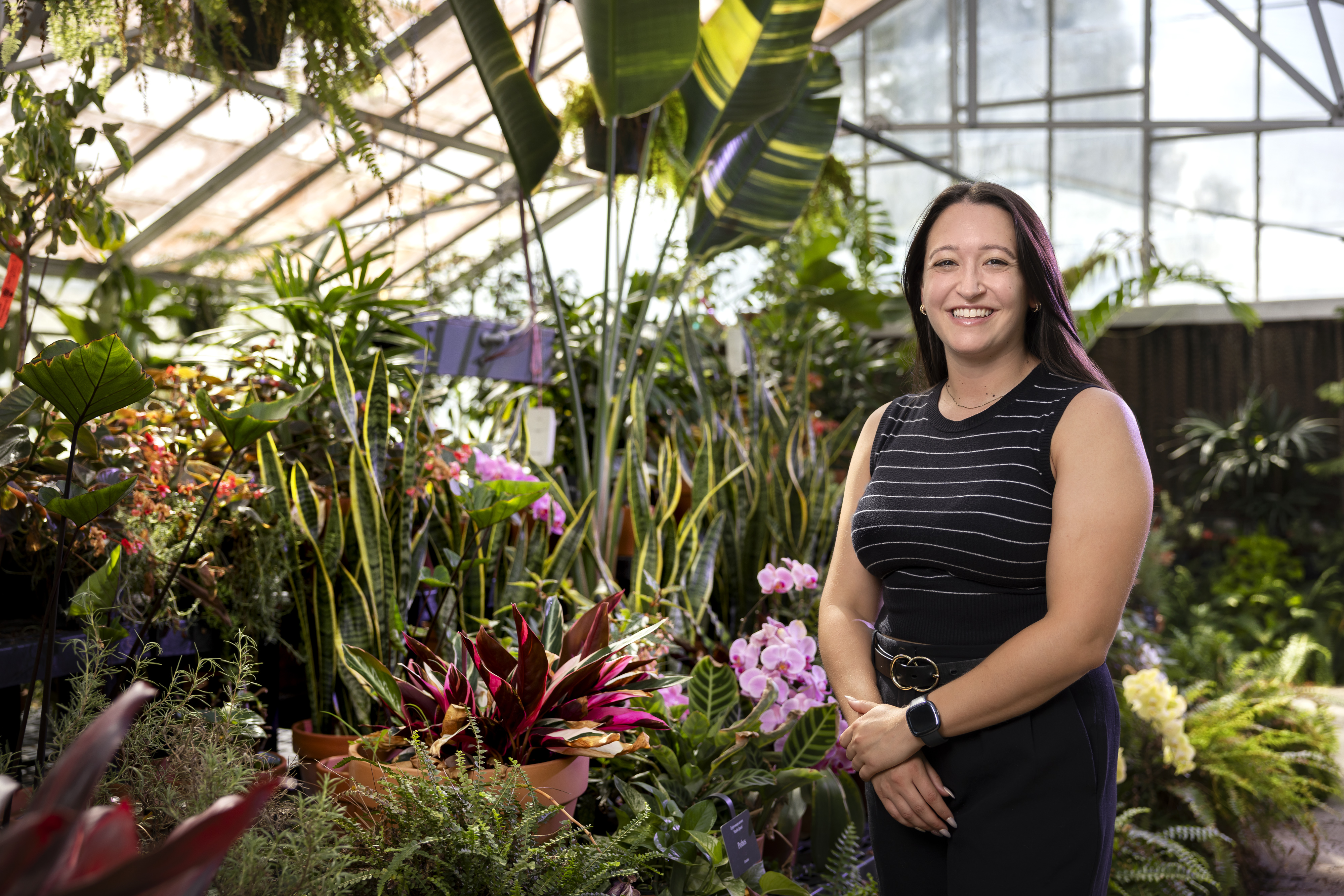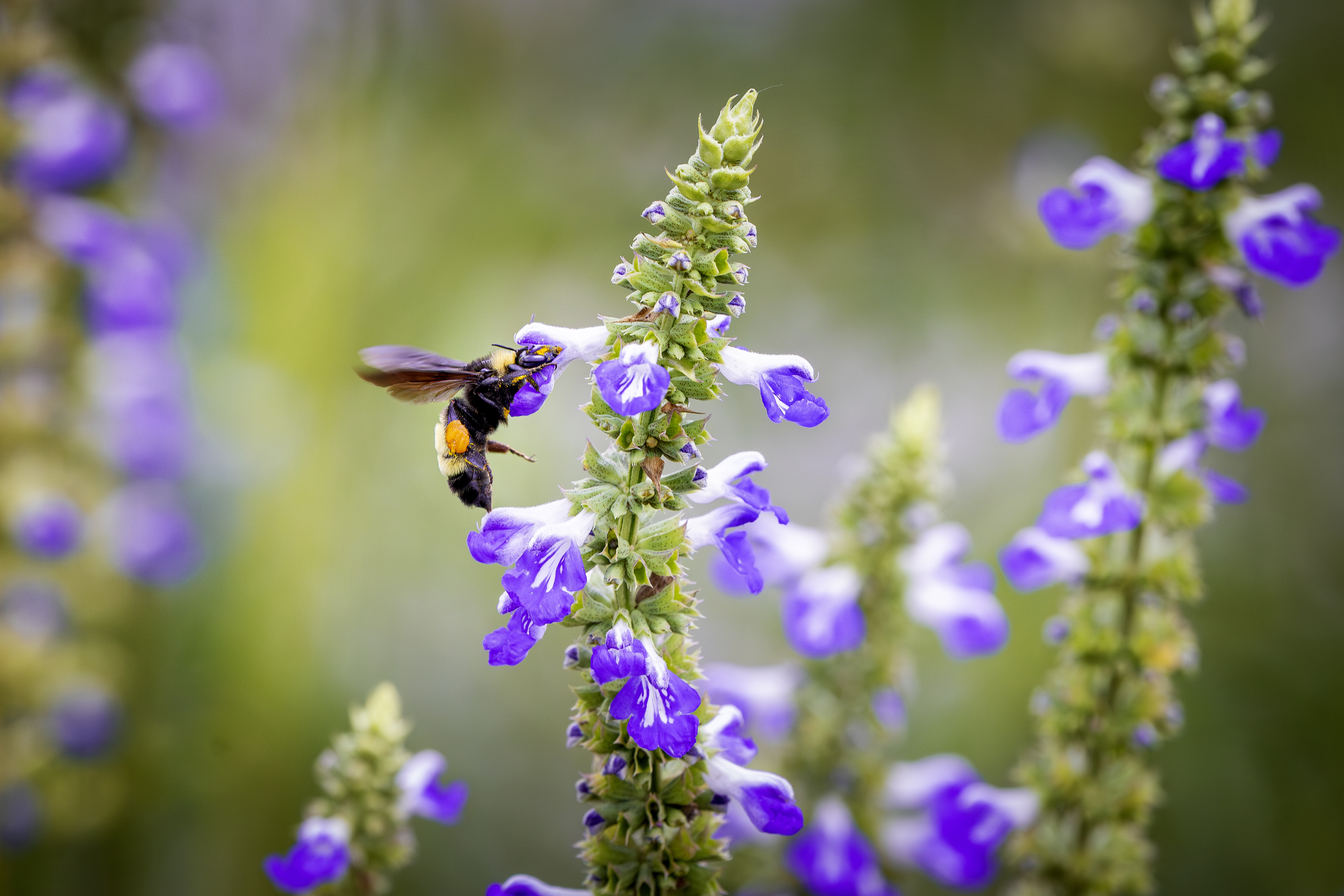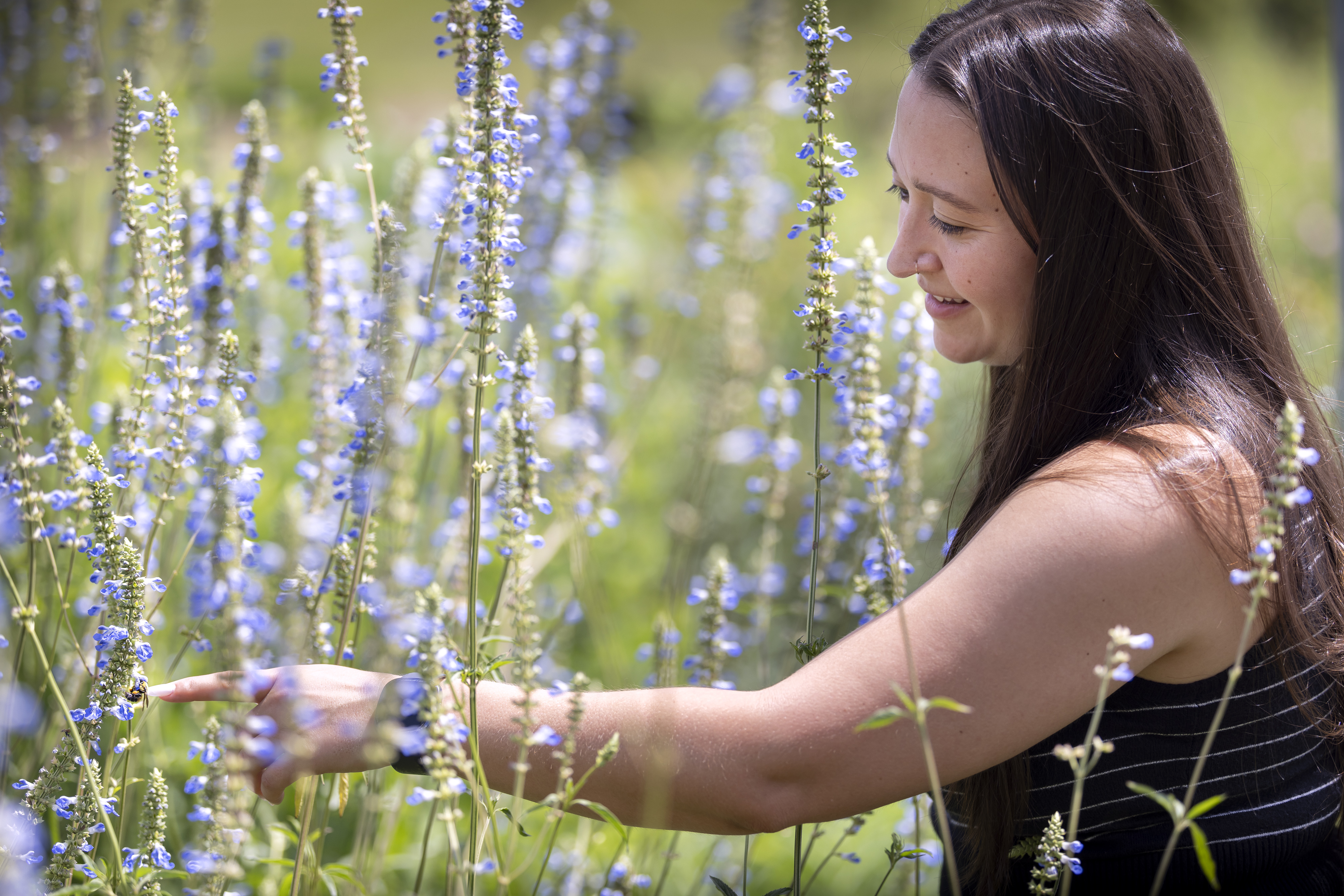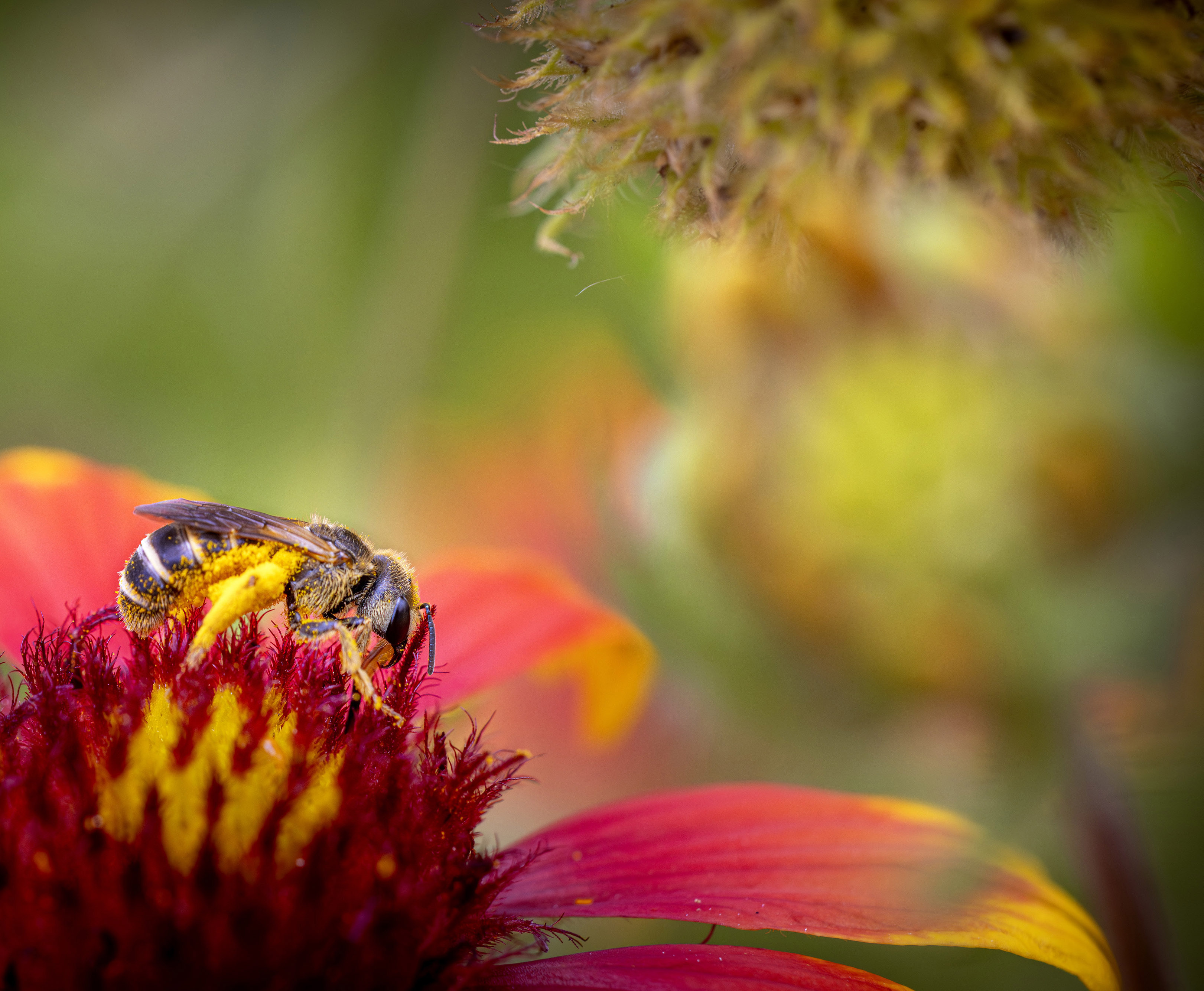LSU Ecologist on a Mission to Protect the Pollinators—and Louisiana’s Food Supply
June 25, 2025
One of Louisiana’s vital pollinators—honey bees—are facing the starkest decline in history. This year, state beekeepers reported an estimated 60% loss of honey bee colonies, a decline that’s mirrored across the nation.
Among the reasons are viruses spread by parasitic mites, pesticide exposure, poor nutrition, habitat loss, and environmental conditions. Assistant Professor Morgan Christman, LSU’s first pollinator ecologist, is on a mission to change this trajectory—and she wants your help.

Morgan Christman
– Photos by Eddy Perez | Videos by Grant French
Pollination is the transfer of pollen from one plant to another, often by insects, helping plants to flower and reproduce. Pollen is also a protein-rich food source for many insects, aiding in their development and growth. As pollinators land on a plant to feed, they accumulate pollen, especially on the hairs on the thorax and abdomen, the head and face, the legs (including pollen baskets in bees), and the underside of their body, which transfers to other plants when they land on them. This cycle of pollination is essential for much of the world’s food crop production.
“Pollinators are one of our keystone organisms. About one-third of our fruits and vegetables are pollinated by bees, moths, butterflies, and different beetles and flies,” said Christman. “Additionally, pollinators increase plant diversity within the environment and plant genetics, so we have healthier, more diverse habitats.”
While it’s hard to imagine not being able to buy strawberries, apples, peppers, and tomatoes at your local grocery store or farmer’s market, crops like these could be significantly impacted by pollinator declines.
“Without pollinators, our lives would look extremely different from what we imagine on a day-to-day basis. We wouldn't have all of the flowers that exist within the environment. We also would have a really large reduction in the fruits and vegetables that we would be able to consume.”
As part of her focus on improving conservation efforts, Christman raises bumble bee colonies in the lab and, in time, releases them back into the wild. The challenge of this method is to ensure the lab populations grow to be healthy and don’t have diseases that can spread to wild bumble bee populations. As part of her research, she also studies the impact of other insect deterrents, like moth traps, on the health and lifecycles of bumble bees.

About one-third of our fruits and vegetables are pollinated by bees, moths, butterflies, and different beetles and flies.

In her new role, Christman has begun to build data about Louisiana’s pollinators and collaborate with local gardeners and ecologists, including the Louisiana Master Gardeners and Louisiana Master Naturalists, two volunteer training groups sponsored by the LSU AgCenter. She hopes to establish a Louisiana Bumble Bee Atlas with the help of citizen scientists, where she can record and track baseline data that can measure progress and pinpoint areas where support is needed in Louisiana moving forward.
While everyone can be mindful of honey bees and other pollinators, homeowners can play an enduring role in the pollinator lifecycle.
“One of the best things homeowners can do for pollinators is plant floral resources, specifically native plants, throughout the season. So from spring to fall, this will provide food resources for pollinators to support their general health as well as their offspring’s health,” said Christman. “When you have a lot of leafy debris or stems in your yard from dead plants, these are really good resources for bees to nest within. Providing small pockets of these habitats within your gardens really helps to support pollinator populations locally.”
Interacting with or feeding from plants that have been sprayed with pesticides can be life-threatening for pollinators. Even if pesticide exposure doesn’t kill them, it can significantly impact fertility rates and be passed to their offspring, causing multigenerational harm.
“Another tip for homeowners is to reduce the amount of pesticides that you use in your yards, as these can be very harmful to pollinator populations and lead to declines. Providing alternative habitats for beneficial insects is a really good alternative for controlling pest populations within the habitat, while also promoting pollinators. This can look like providing different plants and hedgerows within your garden that would help to support things like ladybird beetles, more commonly known as ladybugs, and assassin bugs.”
With your help, honey bees and our native pollinators have a chance to rebound, helping crops thrive and keeping your favorite fruits, vegetables, and nuts plentiful.

How Homeowners Can Help
You can be a bee buddy and help create a friendlier, healthier environment for pollinators in your neighborhood by:
- Planting a pollinator garden of native plants and flowers
- Avoiding pesticide use during bloom periods
- Leaving some stems and leafy debris in gardens or under trees where bee larvae can thrive


Next Step
LSU's Scholarship First Agenda is helping achieve health, prosperity, and security for Louisiana and the world.


